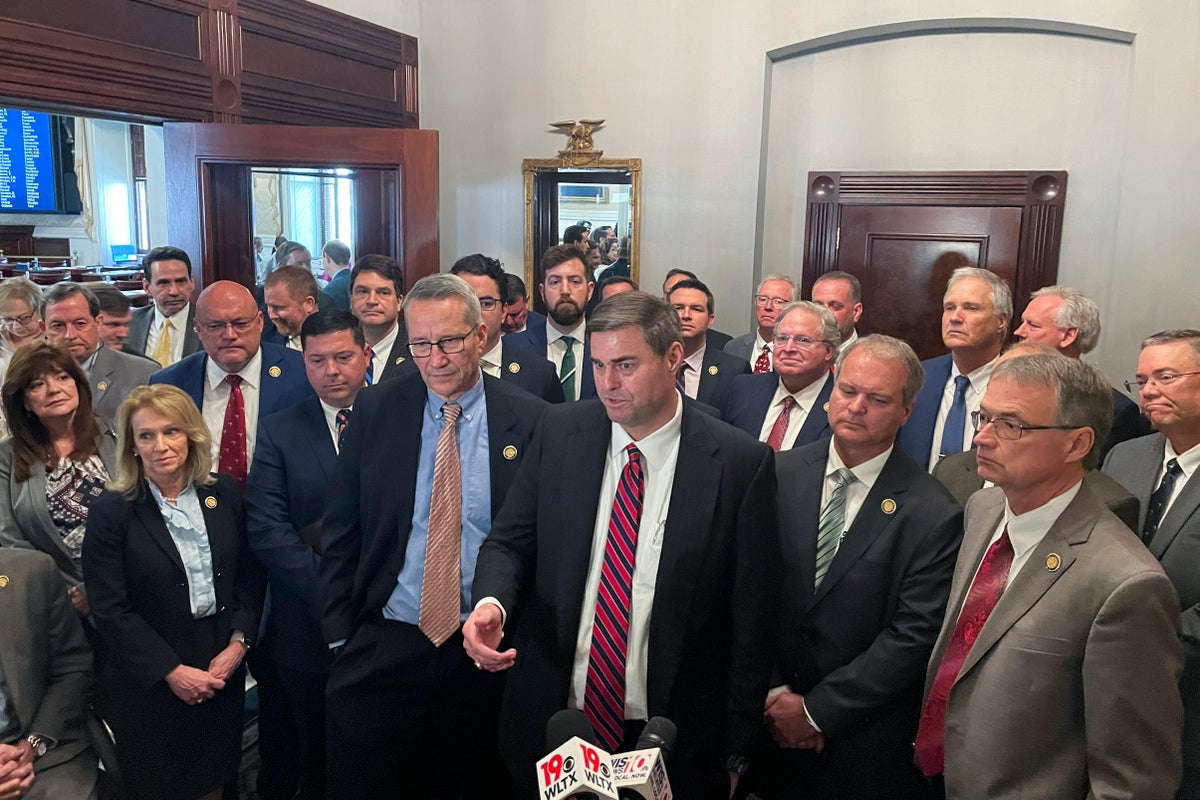
EDITORS/NEWS DIRECTORS:
With U.S. overdose fatalities remaining near record levels, state legislatures are trying to increase penalties for crimes involving fentanyl, the powerful illicit opioid that's been linked to the majority of the deaths.
Lawmakers stress that they're most interested in punishing drug dealers, not users who could need help.
But opponents of the stricter sentencing laws say they have a history of backfiring by imprisoning people who need help and by making the illicit drug supply less stable.
___
FIND AP’S STORY HERE
With overdoses up, states look at harsher fentanyl penalties
___
ADD LOCAL CONTEXT
Find out if your state has a fentanyl law or is considering adopting one.
The National Conference of State Legislatures has found that as of February 2023, 12 states had drug possession laws that explicitly addressed fentanyl and related synthetic opioids. They are:
Arkansas
Colorado
Florida
Louisiana
Maine
Maryland
New Hampshire
Ohio
Oregon
Rhode Island
Tennessee
Vermont
— Cornell Law School's Legal Information Institute maintains links to state codes of statutes, which can be used to search for details on possession laws. Suggested search term: “fentanyl.” Note that states occasionally update their schedules of controlled dangerous substance to conform with federal law and fentanyl appears in those laws, even in states that do not have fentanyl-specific possession laws.
— The Cornell site also provides links to bills introduced to state legislatures, which can be used to learn what measures are currently under consideration. Suggested search term: “fentanyl.”
— State-level fatal overdose data is collected by the U.S. Centers for Disease Control and Prevention. Find deaths related to types of drugs by changing the dashboard to “12 Month-ending Provisional Number of Drug Overdose Deaths by Drug or Drug Class” and view your state under “Select jurisdiction.”
___
TAKE YOUR REPORTING FURTHER
Interview policymakers and advocates in your state about their views on tougher penalties for fentanyl possession. The lawmakers who sponsor measures are one resource.
Others include statewide organizations of district attorneys and harm reduction groups that work with people who use drugs. A listing of many of those groups can be found here.
___
CONSIDER THESE QUESTIONS
— What's the political dynamic? Is this a bipartisan issue in your state, or one where Democrats and Republicans see it differently?
— Are there particular facets of laws or proposals in the state that alarm harm reduction groups and other advocates?
— Are advocates for tougher sentencing laws considering steps to avoid harsher penalties for drug users, as opposed to dealers?
— Would proposed law changes impact “good Samaritan” laws that exempt people from drug possession charges if drugs are found when they report an overdose?
— Does the law or legislation in your state consider the weight of fentanyl in a mixture of drugs, or the total weight of the mixture?
— What is the capacity of state crime labs for measuring the amount of fentanyl in a mixture of drugs?







